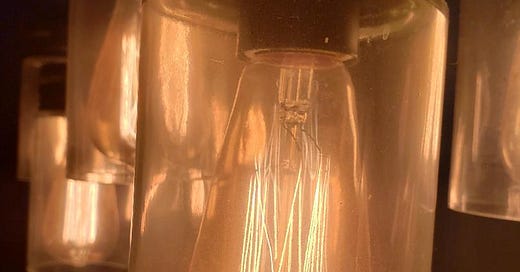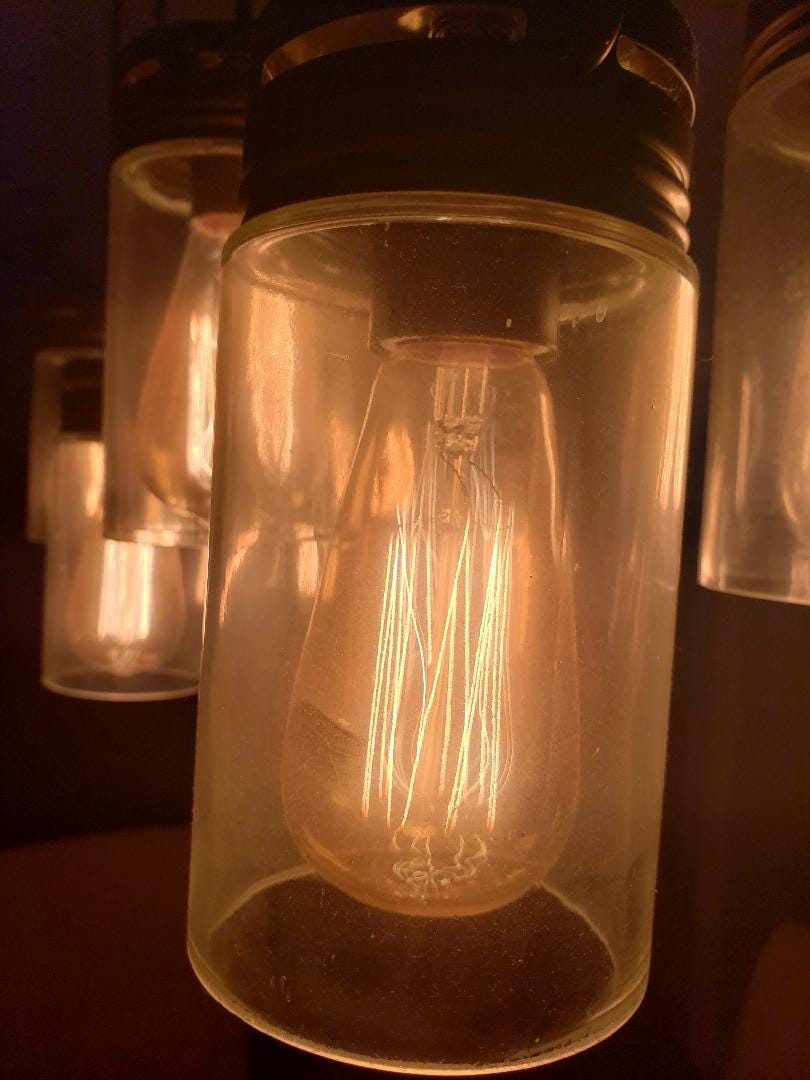Photo: Let there be light Credit: Doreen Nicoll
Welcome to another episode of Small Change where we deconstruct soundbites to expose the truth behind the sale of the social commons – those resources that are shared, accessible and benefit all members of society.
Ontario Hydro was part of the social commons that Premier Kathleen promised, on record, to never sell. That is, until 2015 when her government privatized 60 per cent of Hydro One.
Prior to the sale, Wynne also promised to keep all regulations in place in order to protect consumers from rate hikes. Then, Wynne passed Bill 91, Public Sector and MPP Accountability and Transparency Act, eliminating all consumer protection regulations and watchdogs. That was done to streamline the sale of Hydro One.
That sale generated a one-time windfall of $9 billion, however $5 billion was used to cover some of Hydro One’s $8.5 billion debt. The remaining $4 billion allowed the Wynne government to meet its budget that year. Yet, one has to ask whether that sale was prudent since it meant forgoing $750 million (2014) in profits annually.
Today, Paul Kahnert is ready to help Small Change listeners understand why selling Hydro One – or any part of the social commons – is disastrous for both consumers and small businesses.
Paul worked for Toronto Hydro for 33 years. He was also part of the Ontario-wide campaign known as the Ontario Electricity Coalition whose campaign and 2002 court case successfully stopped Mike Harris’ Conservative government from selling Hydro One.
Paul is currently a freelance writer regularly appearing on rabble.ca, Socialist Project, The Hamilton Spectator and Toronto Star. Find his articles here.
Paul gives Small Change listeners a brief history of hydro in Ontario before tackling how Premier Mike Harris’ deregulation and attempted privatization of Ontario’s power system rode roughshod over Ontarian’s democratic rights.
Paul also explains why the Ontario Electricity Coalition; the Communications, Energy and Paperworkers Union; and the Canadian Union of Public Employees (CUPE) National prevented the Harris government from selling Hydro One in 2002.
In 2003, Liberal leader Dalton McGuinty ran on a promise to end deregulation and keep electricity public. Instead, once elected, the Liberals created the Ontario Power Authority and appointed Jan Carr as Chief Executive Officer (CEO). That was problematic because Carr was a well-known proponent of electricity deregulation.
Over the next two and a half decades, public generation was replaced by private. More importantly, legislation was passed forbidding publicly owned Ontario Power Generation (OPE) from generating green power using wind and solar.
Paul explains how hydro deregulation legislation that was passed 27 years ago still adversely affects consumers today.
Then, there’s Enron, the former American energy, commodities, and services company that was based in Houston, Texas. Enron, once the seventh largest corporation in the United States (US) and 16th largest worldwide, was heavily involved in natural gas and electricity trading and distribution. Yet, despite its massive profits, Enron paid no taxes in four of the last five years it operated.
Enron had thousands of offshore partnerships and an accounting system that hid over $1 billion in debt while artificially inflating profits. That complex accounting arrangement eventually led to Enron’s downfall in October 2001. The multinational was eventually convicted of the largest corporate fraud in history. Paul, explains how Ontario ended up with an electricity market designed by Enron.
We also discuss why the Ford government has been subsidizing hydro to the tune of $7 billion a year and why hydro rates increased four per cent instead of decreasing the 12 per cent promised by Ford during his bid to become Premier.
In addition to that increase, on May 15, 2024, the Ford government passed Bill 165, Keeping energy costs down Act. This Bill has been criticized for several reasons including increasing energy costs for nearly 4 million households while consumers pick up the tab for devlopers to install infrastructure for natural gas heating in new home builds rather than the Ford government making developers switch to installing cleaner, more efficient heat pumps.
Bill 165, also concentrates decision making power in the hands of Stephen Lecce, Minister of Energy and Electrification, rather than the Ontario Energy Board (OEB), an independent body that historically regulated Ontario's electricity and natural gas sectors.
In August 2024, Lecce announced Ontario will be taking bids for new energy projects with the goal of adding 5,000 megawatts to the electricity grid. These new energy projects will be a mix of natural gas, hydroelectric, renewables, nuclear and biomass.
Most of the natural gas used in Ontario is fracked which means that when it’s used to generate electricity it’s climate impact rates right up there with coal. Nuclear not only takes a long time to build, but there’s nuclear waste to dispose of.
Given Ford’s love of natural gas and nuclear power, Paul and I discuss the likelihood that these electricity generating projects will actually reduce carbon emissions across the province and help slow climate change.
And, finally, since Ontarians are going to the polls, we discuss what Merit Styles and the NDP should focus on when it comes to generating enough clean energy to power Ontario at affordable rates.
Thanks to everyone who read today’s article and listened to my podcast. With your continued support, a little Nicoll can make a lot of change.
Music: Real Estate by UNIVERSFIELD is licensed under a Attribution 4.0 International License. freemusicarchive.org.
*Be sure to download the Substack app to get the most from your podcast













Share this post